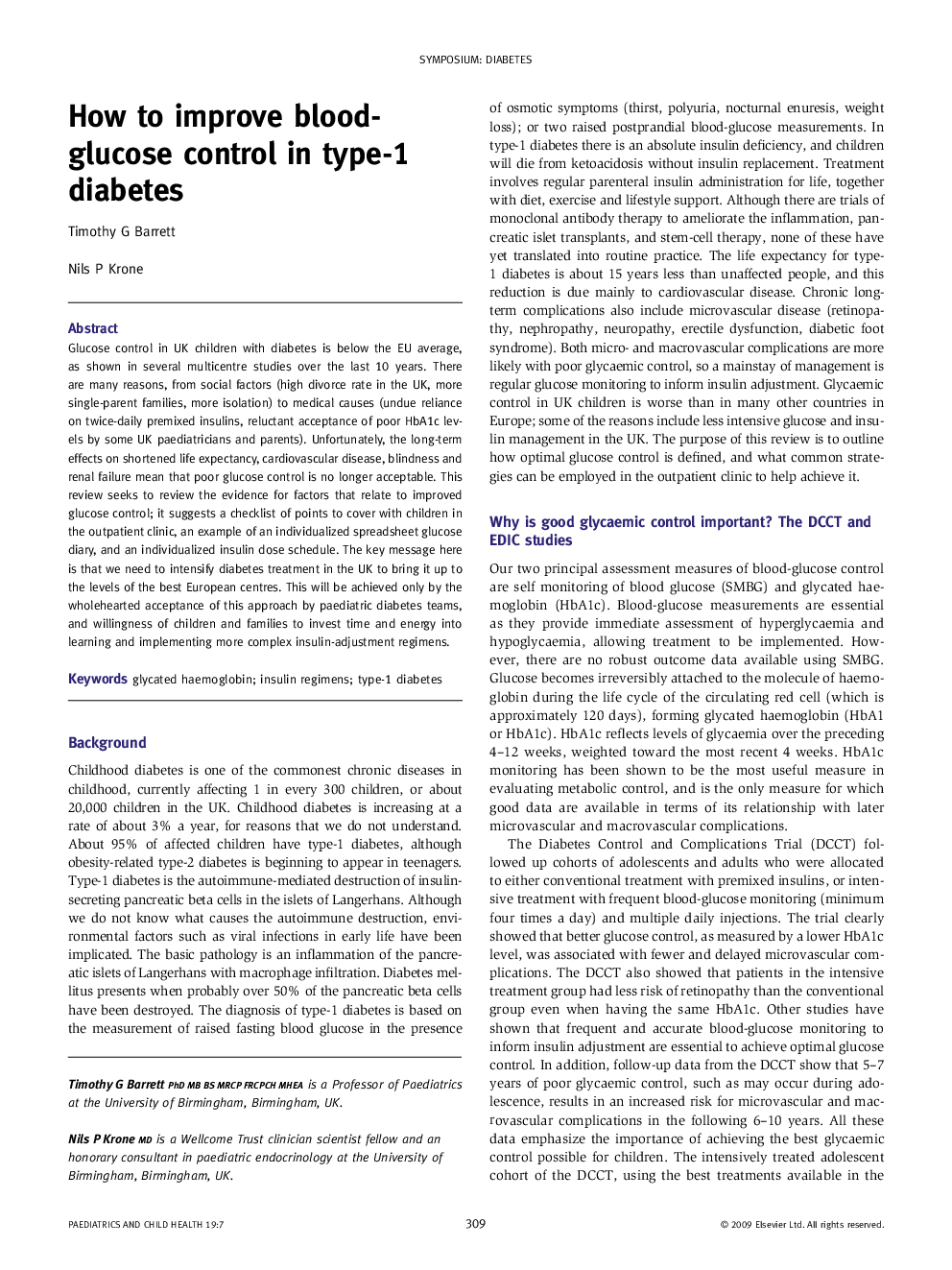| Article ID | Journal | Published Year | Pages | File Type |
|---|---|---|---|---|
| 4172970 | Paediatrics and Child Health | 2009 | 7 Pages |
Glucose control in UK children with diabetes is below the EU average, as shown in several multicentre studies over the last 10 years. There are many reasons, from social factors (high divorce rate in the UK, more single-parent families, more isolation) to medical causes (undue reliance on twice-daily premixed insulins, reluctant acceptance of poor HbA1c levels by some UK paediatricians and parents). Unfortunately, the long-term effects on shortened life expectancy, cardiovascular disease, blindness and renal failure mean that poor glucose control is no longer acceptable. This review seeks to review the evidence for factors that relate to improved glucose control; it suggests a checklist of points to cover with children in the outpatient clinic, an example of an individualized spreadsheet glucose diary, and an individualized insulin dose schedule. The key message here is that we need to intensify diabetes treatment in the UK to bring it up to the levels of the best European centres. This will be achieved only by the wholehearted acceptance of this approach by paediatric diabetes teams, and willingness of children and families to invest time and energy into learning and implementing more complex insulin-adjustment regimens.
